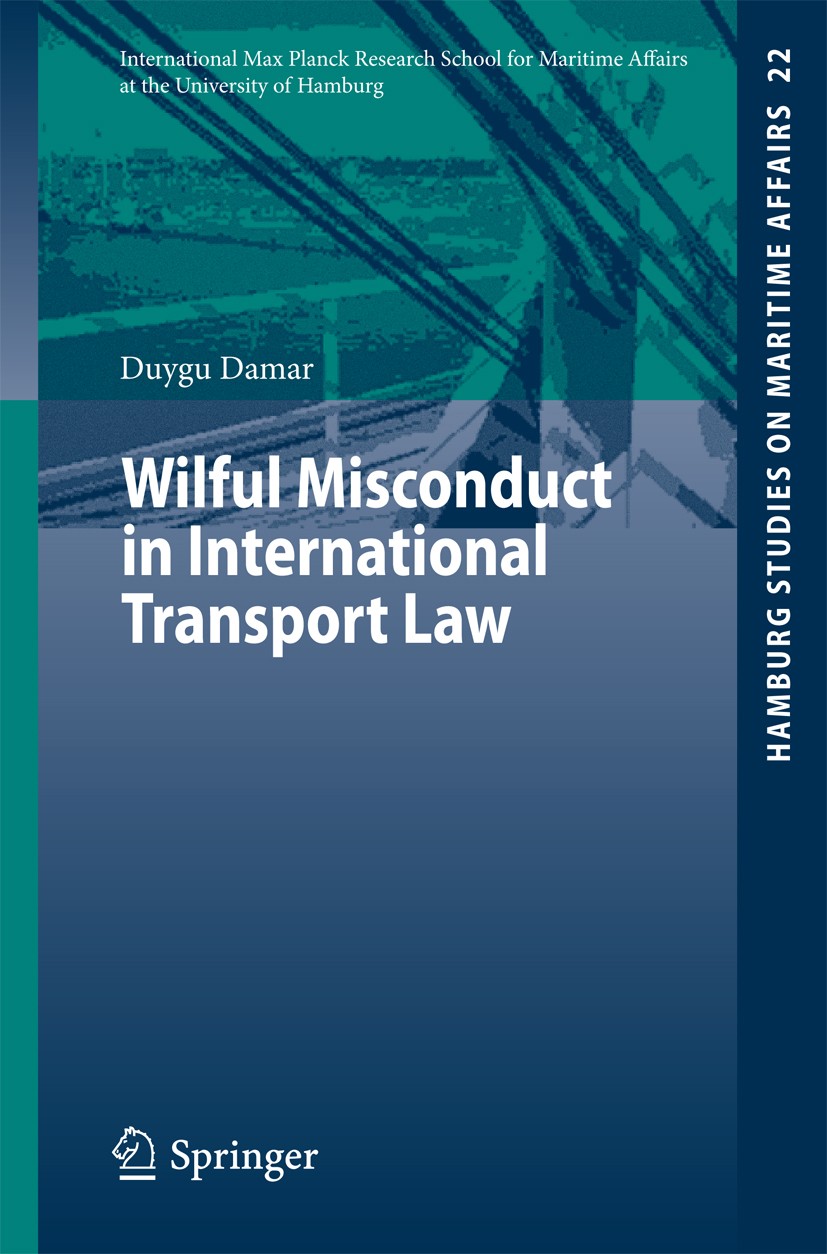| 书目名称 | Wilful Misconduct in International Transport Law |
| 编辑 | Duygu Damar |
| 视频video | http://file.papertrans.cn/1029/1028575/1028575.mp4 |
| 概述 | Historical background of the term "wilful misconduct" in common law.Detailed analysis of the term and its prerequisites.The function of "wilful misconduct" in transport law, especially in carriage by |
| 丛书名称 | Hamburg Studies on Maritime Affairs |
| 图书封面 |  |
| 描述 | The main rationale of the conventions on international transport law is to limit the liability of the carrier. However, an aspect common to these conventions is that in cases of "wilful misconduct" the carrier is liable without any financial limitation. "Wilful misconduct" denoting a high degree of fault is an established term in English law. The Convention for the Unification of Certain Rules relating to International Carriage by Air (Warsaw Convention) of 1929 was the first international convention on transport law where the term was .employed. A definition of "wilful misconduct", which can be found in later conventions regarding carriage of goods and passengers as well, was implemented in the Hague Protocol of 1955, amending the Warsaw Convention. However, the question as to exactly which degree of fault constitutes "wilful misconduct" has to date remained controversial and unanswered. This work seeks to answer this question. To this end, the historical background of the term, together with its function and role in marine insurance law, case law .and international transport law, are examined from a comparative perspective.. |
| 出版日期 | Book 2011 |
| 关键词 | Carriage of goods; Carriage of passengers; Corporate liability and attribution; Fault degrees; Wilful mi |
| 版次 | 1 |
| doi | https://doi.org/10.1007/978-3-642-21509-4 |
| isbn_softcover | 978-3-642-21508-7 |
| isbn_ebook | 978-3-642-21509-4Series ISSN 1614-2462 Series E-ISSN 1867-9587 |
| issn_series | 1614-2462 |
| copyright | Springer-Verlag Berlin Heidelberg 2011 |
 |Archiver|手机版|小黑屋|
派博传思国际
( 京公网安备110108008328)
GMT+8, 2026-2-8 01:40
|Archiver|手机版|小黑屋|
派博传思国际
( 京公网安备110108008328)
GMT+8, 2026-2-8 01:40


